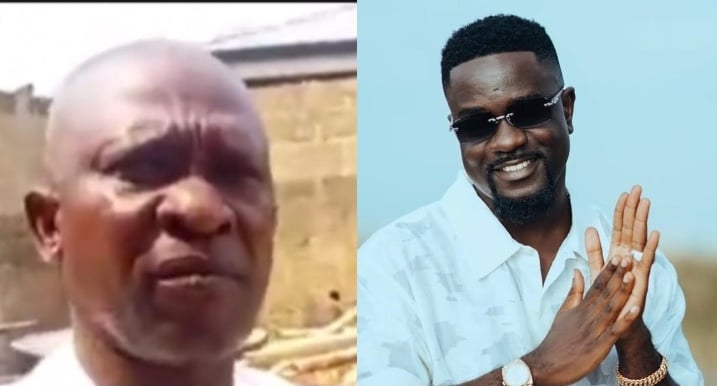Prophet Mensah’s ultimatum to Sarkodie has ignited a controversy, raising questions about freedom of expression, the role of religion in public discourse, and the potential for misinterpretation in the digital age. The incident stems from a statement made by Sarkodie, a prominent Ghanaian rapper, where he remarked, “Back to gari soakings like we never left.” This seemingly innocuous comment about economic hardship was interpreted by Prophet Mensah as a veiled attack on President John Mahama, who recently returned to office after an eight-year hiatus. The prophet’s subsequent actions, including a fiery ritual and a public ultimatum demanding an apology from Sarkodie within seven days, have thrust the issue into the national spotlight.
The core of the controversy lies in the perceived meaning behind Sarkodie’s statement. While Prophet Mensah insists that the rapper’s words were a direct jab at President Mahama, linking the economic struggles implied by “gari soakings” to Mahama’s return to power, there is no explicit mention of the president in Sarkodie’s original statement. This ambiguity has fueled debate, with many questioning the basis of the prophet’s accusations. Critics argue that the prophet’s interpretation is a stretch, attributing a political motive to a statement that could simply reflect a general observation about economic realities. This raises concerns about the potential for misinterpretation and the dangers of jumping to conclusions, particularly in the context of politically charged environments.
Prophet Mensah’s response to Sarkodie’s statement has further amplified the controversy. His decision to perform a ritual involving boiling herbs over an open flame, coupled with his public pronouncements of curses and impending poverty upon Sarkodie and his family, has been met with mixed reactions. Some view his actions as an overreaction, an inappropriate use of religious authority, and a potential threat to freedom of expression. They argue that in a democratic society, individuals should be free to express their opinions, even if those opinions are critical of political figures, without fear of retribution or spiritual condemnation. Others, however, defend the prophet’s actions, suggesting that public figures like Sarkodie should exercise caution and avoid making statements that could be misinterpreted or deemed disrespectful to those in positions of power.
The incident underscores the power of language and the potential for miscommunication, particularly in the digital age where information spreads rapidly and context can be easily lost. Sarkodie’s statement, seemingly a simple observation about economic hardship, has been transformed into a political controversy through interpretation and amplification. This highlights the importance of clarity and precision in communication, especially when addressing sensitive topics or expressing opinions about public figures. The incident also raises questions about the role of social media in shaping public discourse and the potential for online platforms to amplify and distort messages.
The involvement of a religious figure in this controversy adds another layer of complexity. Prophet Mensah’s decision to invoke spiritual curses and threaten poverty raises concerns about the intersection of religion and politics. Critics argue that his actions represent a misuse of religious authority and an attempt to silence dissenting voices through fear and intimidation. They emphasize the importance of separating religious beliefs from political discourse and upholding the principles of freedom of speech and secular governance. Supporters of the prophet, however, may view his actions as a legitimate expression of his faith and a defense of the president’s honor. This divergence in perspectives underscores the sensitivity surrounding the role of religion in public life and the potential for conflict when religious beliefs intersect with political issues.
The ongoing silence from Sarkodie, who has yet to respond to the allegations or the ultimatum, further fuels speculation and adds to the intrigue surrounding the incident. His eventual response, if any, will likely shape the trajectory of the controversy. A public apology, while potentially appeasing the prophet and his supporters, could be interpreted as a concession to pressure and a limitation on freedom of expression. On the other hand, a defiant stance could escalate the situation and lead to further pronouncements from Prophet Mensah. The rapper’s silence also underscores the difficult position he finds himself in, caught between the demands of a religious figure and the expectations of his fans who value his artistic expression and outspokenness. The outcome of this controversy will undoubtedly have implications for the broader conversation about freedom of speech, religious tolerance, and the dynamics of power in Ghana.














